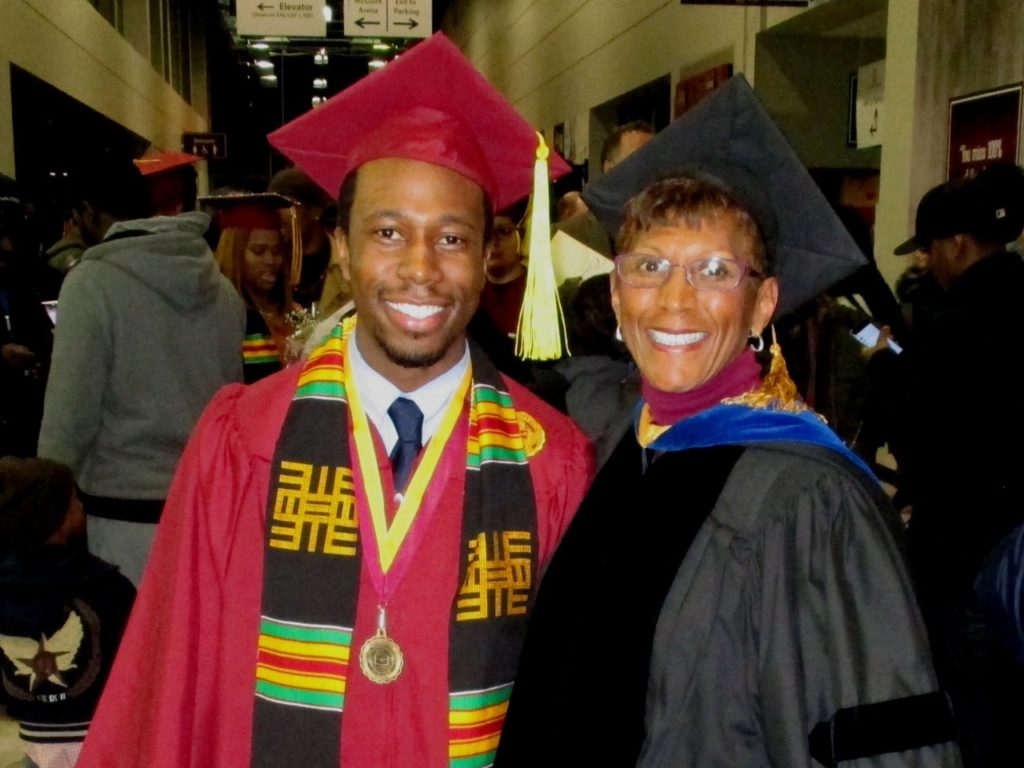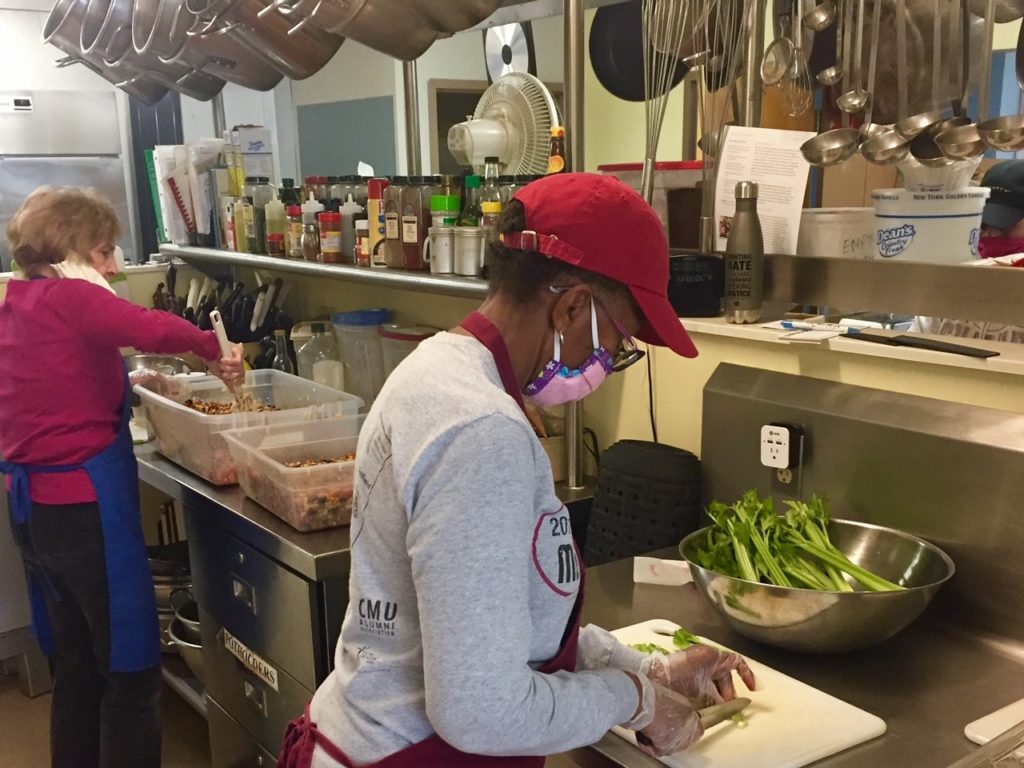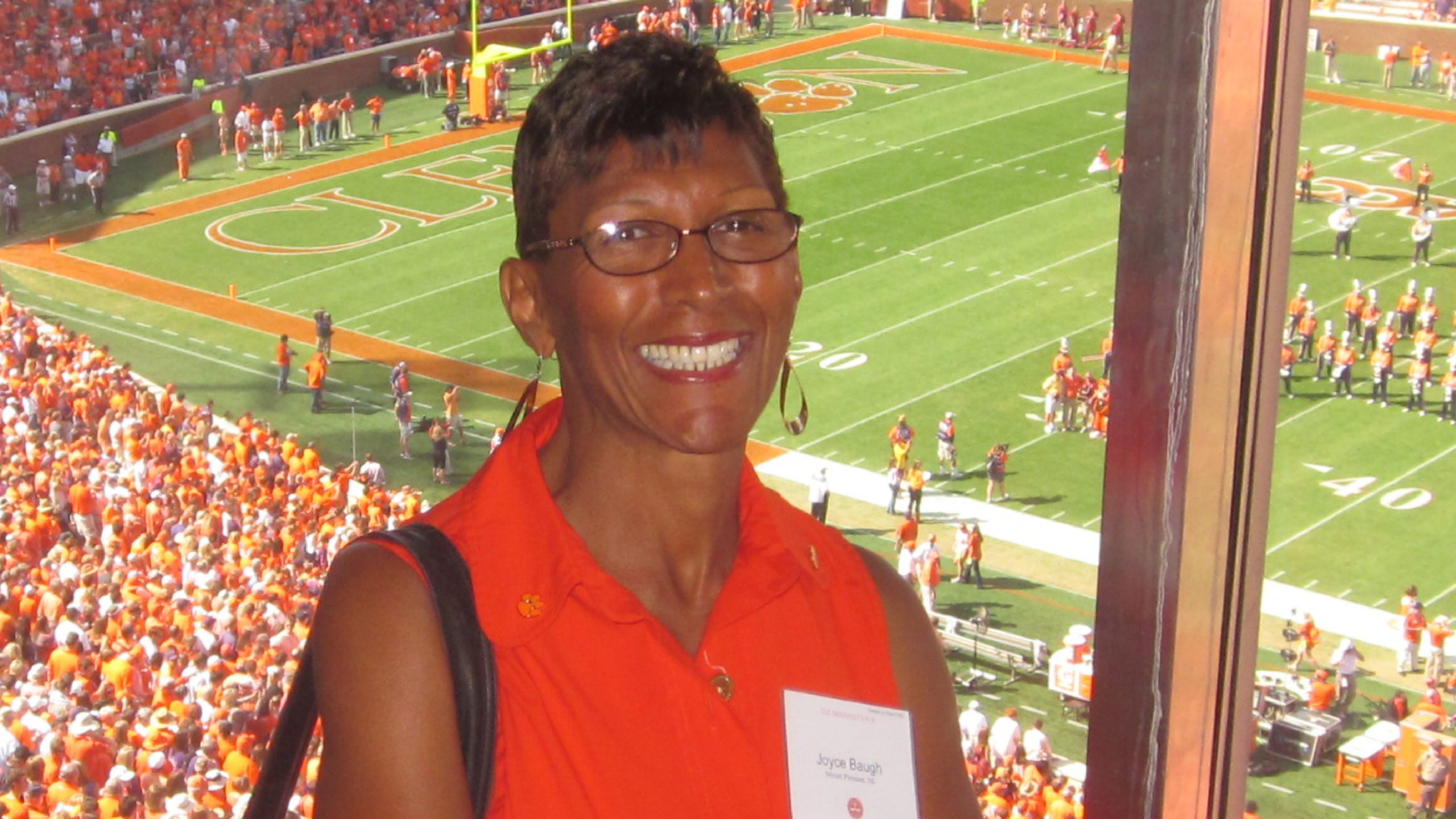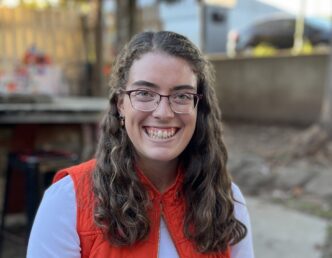Meet Joyce A. Baugh, a 1981 political science alumna. She was a professor at Central Michigan University for nearly 30 years, and she served as department chair for six years. She taught courses on the judicial process, the civil rights movement and constitutional law and wrote books on the civil rights movement and the evolution of the U.S. Supreme Court. Baugh earned a master’s degree and Ph.D. in political science at Kent State University in 1983 and 1989, respectively, after graduating from Clemson University. She joined the faculty at Central Michigan University in August 1988, where she spent the entirety of her career.
However, retirement hardly slowed Baugh down. She is active in her community, volunteering at a soup kitchen and working in a local organization to strengthen community relations and promote equitable and non-discriminatory practices in public safety. We caught up with her to learn more about her Clemson Experience and her career.
What inspired you to choose this career?
Actually, the answer is who inspired me. I had always planned to go to law school after completing my undergraduate degree. But, Dr. Harold Albert, my political science adviser, suggested that I go to graduate school, get my doctorate and then teach at the college level. He told me this my sophomore year. I resisted the idea for a while, but a year or so after graduation, I realized that he gave me great advice.
What was the best part about your job?

I enjoyed working with students – teaching, advising, and mentoring. The light bulb moments and the looks on their faces when they understood a concept that they had difficulty with were priceless. One of my first mentees, a first-generation student who joined the Army Officer Corps after receiving her bachelor’s and master’s degrees, recently retired after attaining the rank of lieutenant colonel.
Another mentee participated in the McNair Scholars Program, designed to prepare first-generation students and those from underrepresented groups for graduate education. He is currently working on his doctorate in political science at Indiana University.
Many other advisees/mentees are working in government at the local, state and national levels, including a member of the Michigan House of Representatives, who is the first African American to serve as her district’s representative.
How did Clemson prepare you?
Classes in my political science major, English minor and other social sciences and humanities helped me develop critical thinking, writing and public speaking skills. My participation in various campus activities taught me time management, organizational and leadership skills along with the ability to work with a variety of people in different settings.
Any advice to students wanting a similar career?
I would suggest finding mentors to learn about specific preparations for their fields of study and then choosing the graduate programs that best fit those areas. As students complete their relevant graduate degrees and prepare themselves to enter the job market, it is important to consider the various educational settings to find the right fit – liberal arts colleges, comprehensive universities, elite research universities, etc. During the interview process, be sure to inquire about the institutional culture and request information regarding the requirements for tenure and promotion.

Tell us about your volunteer work.
After my retirement, I began volunteering at our local soup kitchen once a week, but once the pandemic began, I have been serving three days a week. I have been an active member of my county’s Democratic Party for many years, including serving as one of our representatives on our county canvassing board. For the last several years, I have served in a community organization, the Mt. Pleasant Area Diversity Group, aimed at improving diversity and inclusion. Since 2018, I have served on our subcommittee, which is working with our police chief to strengthen community relations and promote equitable and non-discriminatory practices in public safety. I was also a member of the Clemson Black Alumni Council from 2014-2016.
What was your favorite Clemson memory?
I have many good memories, such as attending football and basketball games and participating in co-curricular activities like student government, Blue Key and Central Spirit. But two of the most memorable events involved academic honors. First, I received a Truman Scholarship my sophomore year – one of 53 awarded nationwide.
The second involves an interesting story. During my senior year, I received a letter directing me to go to the President’s Box at the football stadium on a particular evening, but it did not indicate the purpose of this event. I talked with a few other friends who had received the same correspondence, so we decided we should go. When we arrived, we learned we had been selected for membership in Mortar Board, the national senior honor society. It was a very proud moment for me!
The Department of Political Science is part of the University’s College of Behavioral, Social and Health Sciences (CBSHS). Established in July 2016, CBSHS is a 21st-century, land-grant college that combines work in seven disciplines – Communication; Nursing; Parks, Recreation and Tourism Management; Political Science; Psychology; Public Health Sciences; Sociology, Anthropology and Criminal Justice – to further its mission of “building people and communities” in South Carolina and beyond.







